
This is to notify you that our website needs cookies for it's full functionality and your best user experience.

05/02/2025

Explore the vibrant and deeply spiritual celebration of Thaipusam 2025, a festival that showcases unwavering devotion, sacrifice, and faith. This sacred Hindu festival, observed by the Tamil community worldwide, is a testament to resilience and the profound bond between devotees and the divine. Dive into its colorful processions, heartfelt rituals, and cultural significance, discovering the rich heritage that continues to thrive through this inspiring celebration.
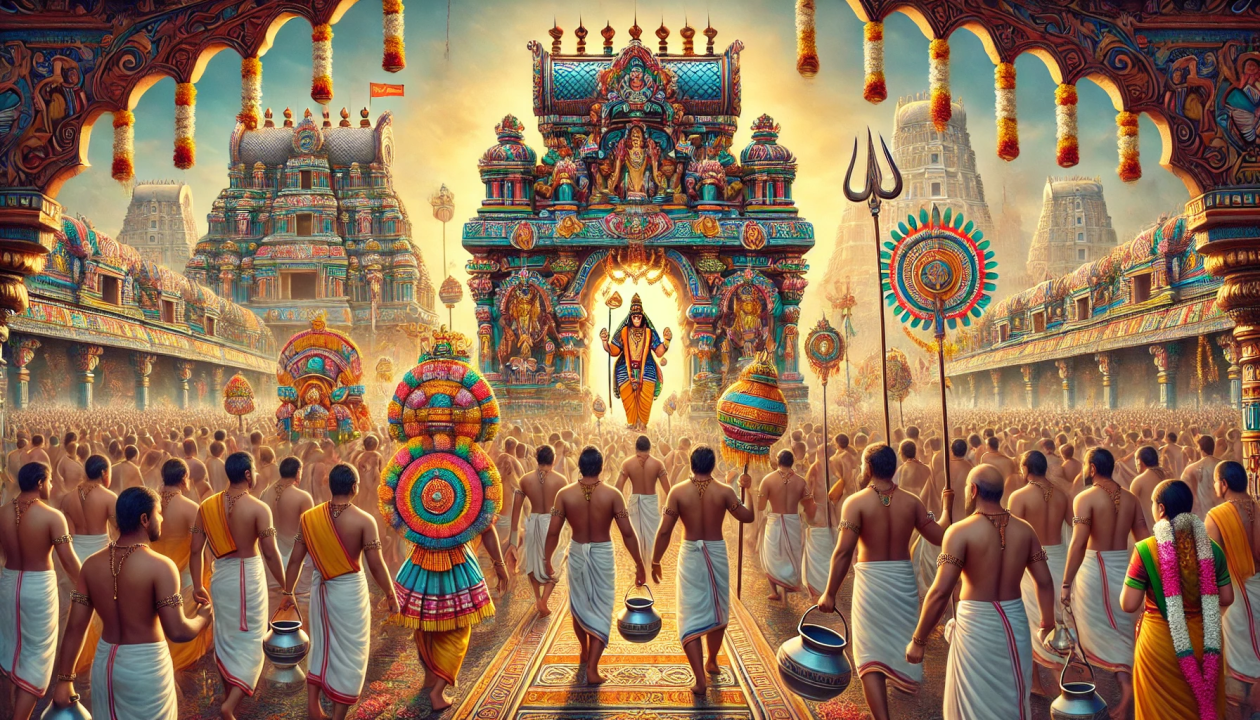
Thaipusam, a vibrant and deeply spiritual Hindu festival, will be celebrated on Tuesday, February 11, 2025. This annual event, observed primarily by Tamil communities across the globe, is dedicated to Lord Murugan, the deity of war, victory, and wisdom. It commemorates the day when Goddess Parvati gifted Lord Murugan the vel (a divine spear) to defeat the demon Soorapadman, symbolizing the triumph of good over evil.
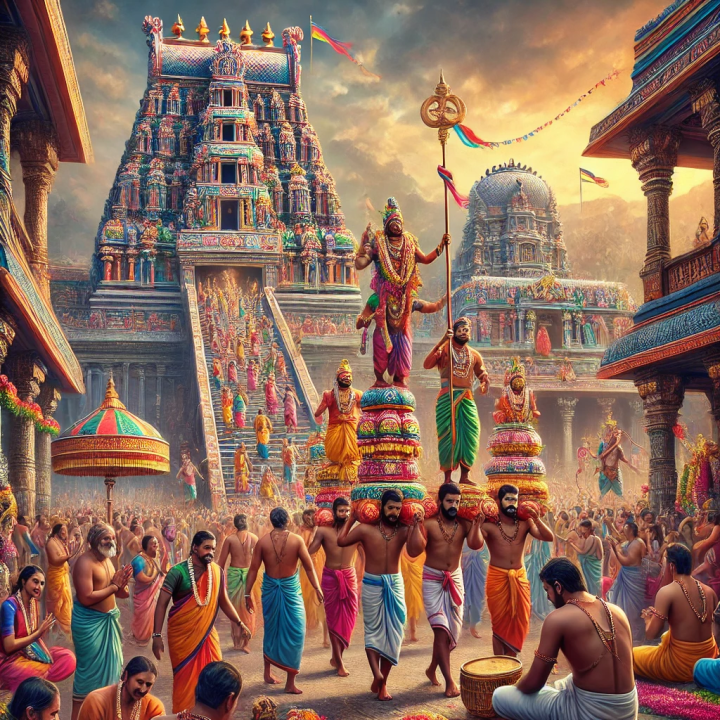
Thaipusam derives its name from the Tamil words “Thai” (the Tamil month of January-February) and “Pusam” (the name of a star). The festival occurs during the full moon when the Pusam star is at its brightest, signifying prosperity and the purging of sins. For devotees, Thaipusam is a time to express gratitude, seek blessings, and demonstrate devotion through acts of penance and thanksgiving.
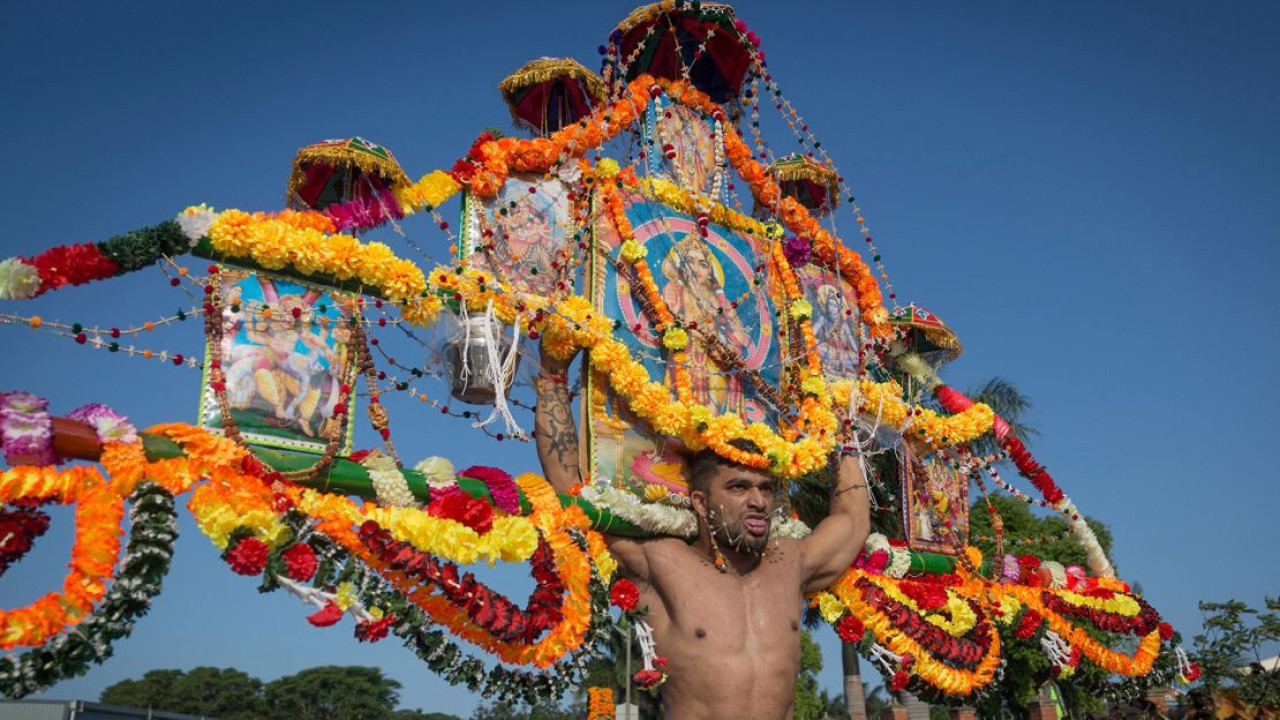
One of the most iconic aspects of Thaipusam is the kavadi procession. The kavadi is a ceremonial offering to Lord Murugan, often a beautifully decorated structure carried on the shoulders of devotees. Some kavadi bearers go to extraordinary lengths, piercing their bodies with hooks, skewers, and spears as an act of penance and devotion. This practice, though intense, is performed with great faith and often after deep meditation and fasting.
Here are some common rituals observed during Thaipusam:
Early Morning Prayers

Early morning prayers are an important ritual for devotees of Lord Murugan, marking the start of the day with devotion at temples like Batu Caves in Malaysia, Arulmigu Balathandayuthapani Temple in Penang, and Sri Thendayuthapani Temple in Singapore. Devotees offer flowers, fruits, and incense while chanting sacred mantras, seeking blessings for strength and protection. The serene temple atmosphere during these prayers helps purify the mind and soul, setting a positive tone for the day. During special occasions like Thaipusam, these morning prayers are often followed by grand processions and acts of penance..
Milk Offerings
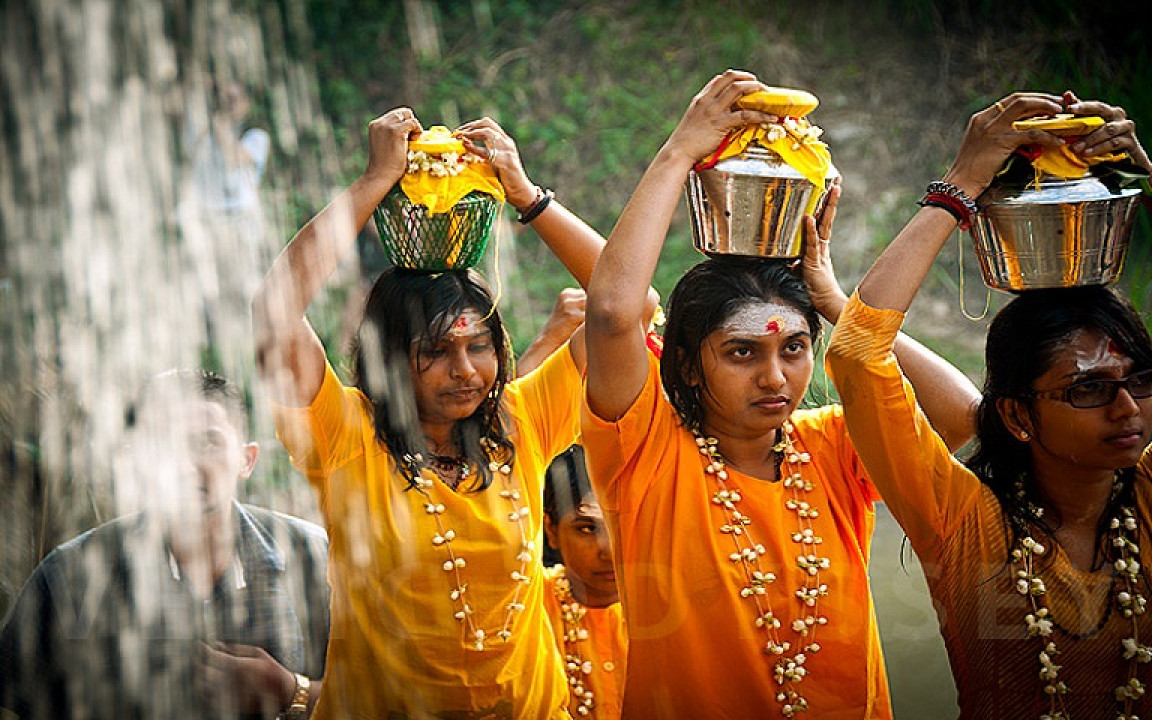
Milk offerings, known as paal kudam, are a significant part of many devotional rituals, symbolizing purity, devotion, and reverence. Devotees carry pots of milk to temples, offering it to the deity as a sacred act of faith. The milk is often poured over the idol or used in other ritualistic practices, representing the surrender of the self to the divine. This offering is believed to purify the mind and soul, fostering a closer connection with the deity. Paal kudam is especially prominent during Thaipusam, where devotees express gratitude and seek blessings.
Kavadi Processions
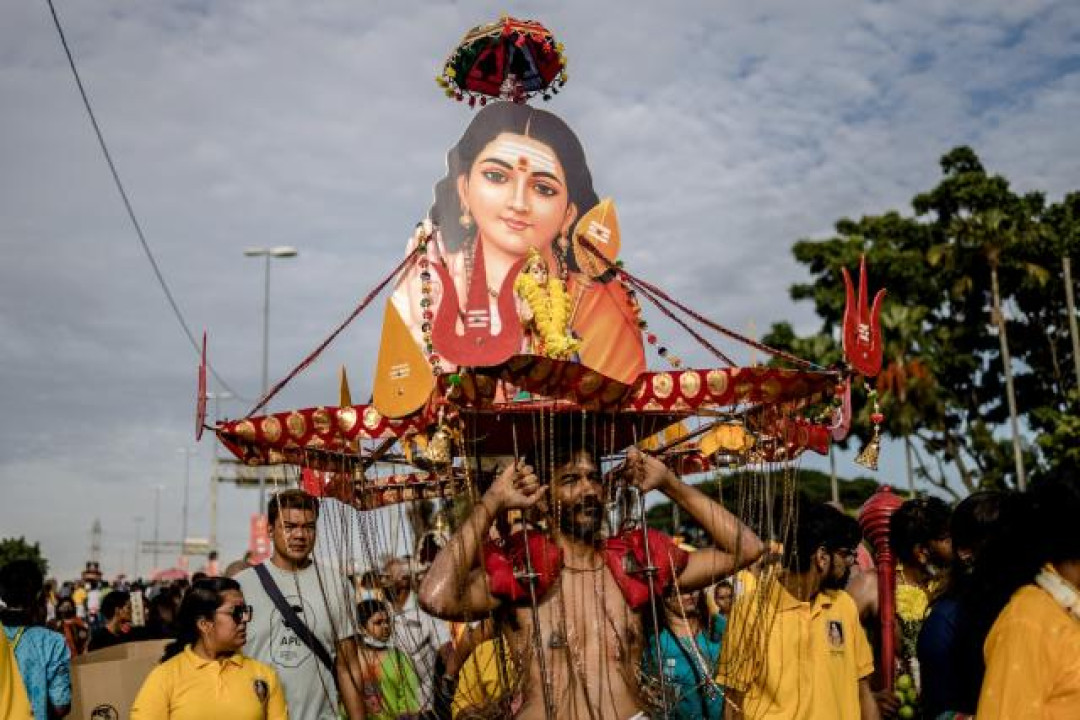
Devotees often walk barefoot for long distances, carrying kavadi or other offerings as an act of deep devotion. This arduous journey is considered a test of endurance, faith, and humility, with many devotees enduring physical discomfort as a way to purify themselves and seek blessings from the deity. The walk symbolizes the shedding of ego and a deep surrender to the divine, reinforcing the bond between the devotee and Lord Murugan. During Thaipusam, the journey becomes a powerful display of devotion, sacrifice, and spiritual strength.
Fasting and Meditation

Leading up to Thaipusam, many devotees observe strict fasting, adopt vegetarian diets, and engage in spiritual practices to purify both mind and body. These disciplines are believed to help cleanse the devotee spiritually, preparing them for the intense physical and mental demands of the festival. The fasting is seen as an act of penance and devotion, allowing the devotee to focus entirely on the divine. Through these practices, they aim to strengthen their faith, seek blessings, and cultivate a sense of humility and inner peace in anticipation of the sacred rituals and offerings during Thaipusam.
Thaipusam is celebrated with grandeur and fervor in various countries, each adding its unique touch to the festival:
Malaysia
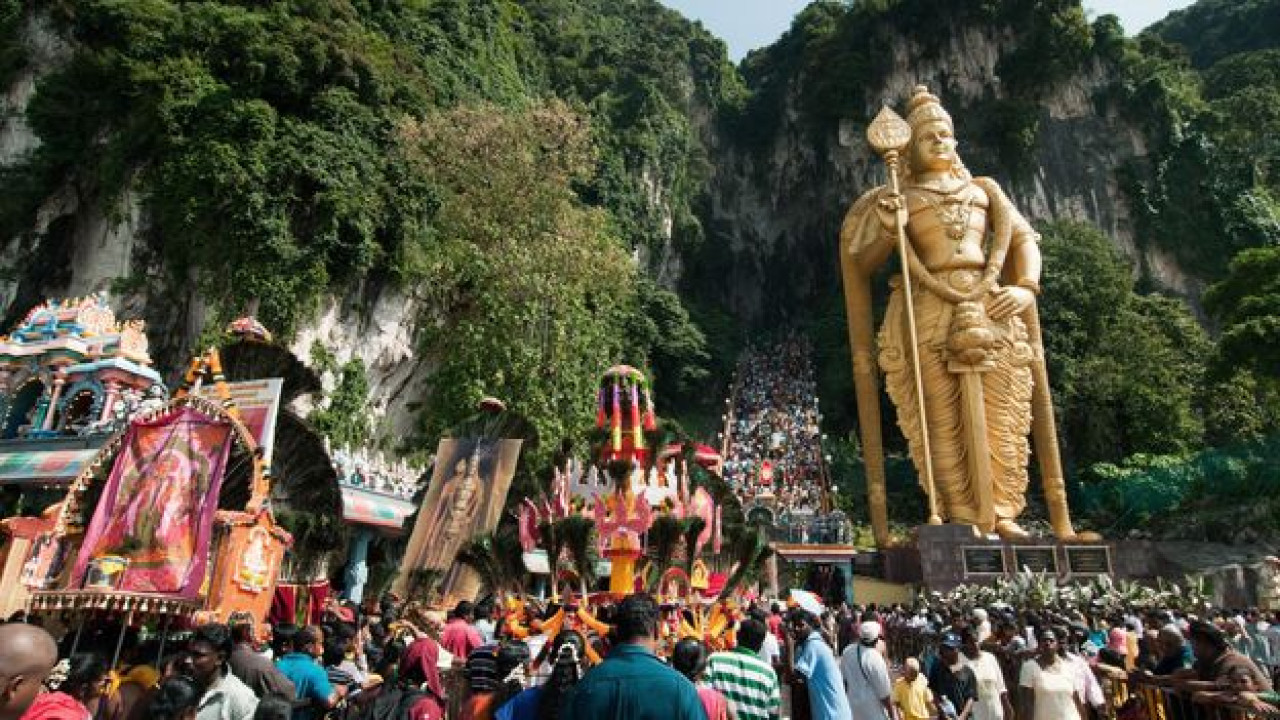
The Batu Caves in Kuala Lumpur become the epicenter of Thaipusam celebrations, drawing millions of devotees and tourists each year. The 272-step climb to the temple cave is a breathtaking sight, with devotees making the ascent while carrying vibrant kavadi offerings and chanting hymns in praise of Lord Murugan. The procession is a powerful display of faith, endurance, and devotion, with the vibrant colors, sounds, and fervent prayers creating an atmosphere of spiritual intensity. For many, the climb is both a physical challenge and a profound act of devotion, symbolizing their devotion and surrender to the divine.
Singapore
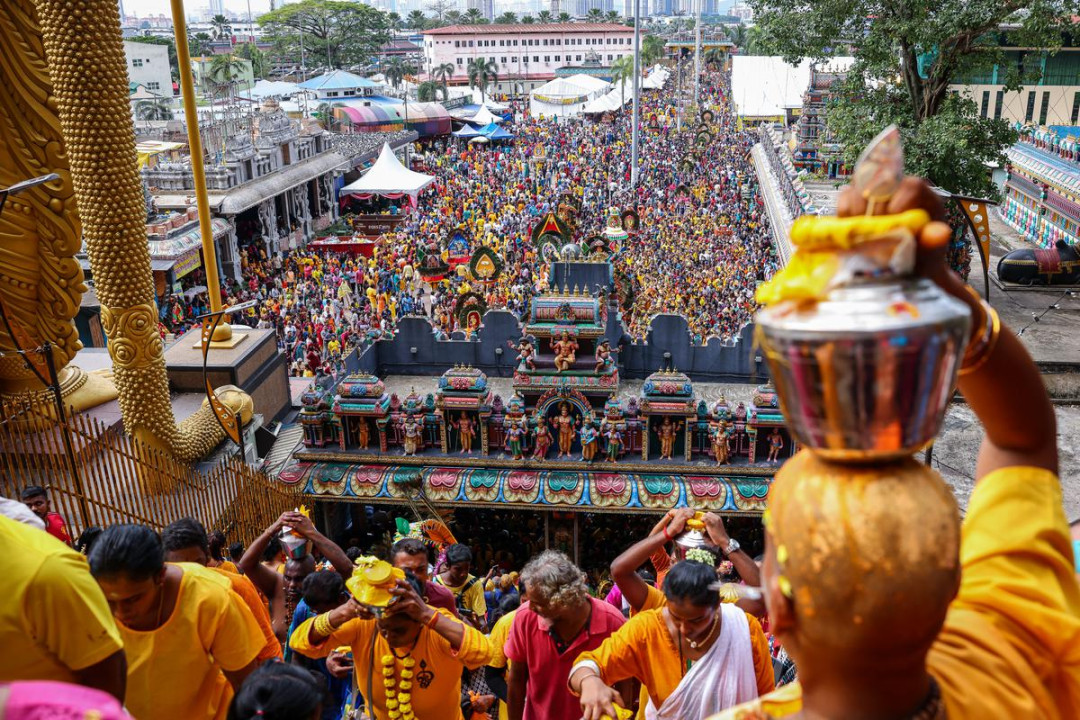
The procession from the Sri Srinivasa Perumal Temple to the Sri Thendayuthapani Temple is a key highlight of Thaipusam celebrations, filled with vibrant energy. As devotees make their way through the streets, the atmosphere comes alive with the sound of music, rhythmic drumming, and heartfelt prayers. The streets are lined with onlookers, and the unwavering spirit of the devotees carrying kavadi and other offerings is evident in every step. This grand procession symbolizes devotion, unity, and the deep connection between the community and Lord Murugan, creating a truly captivating and spiritual experience.
India
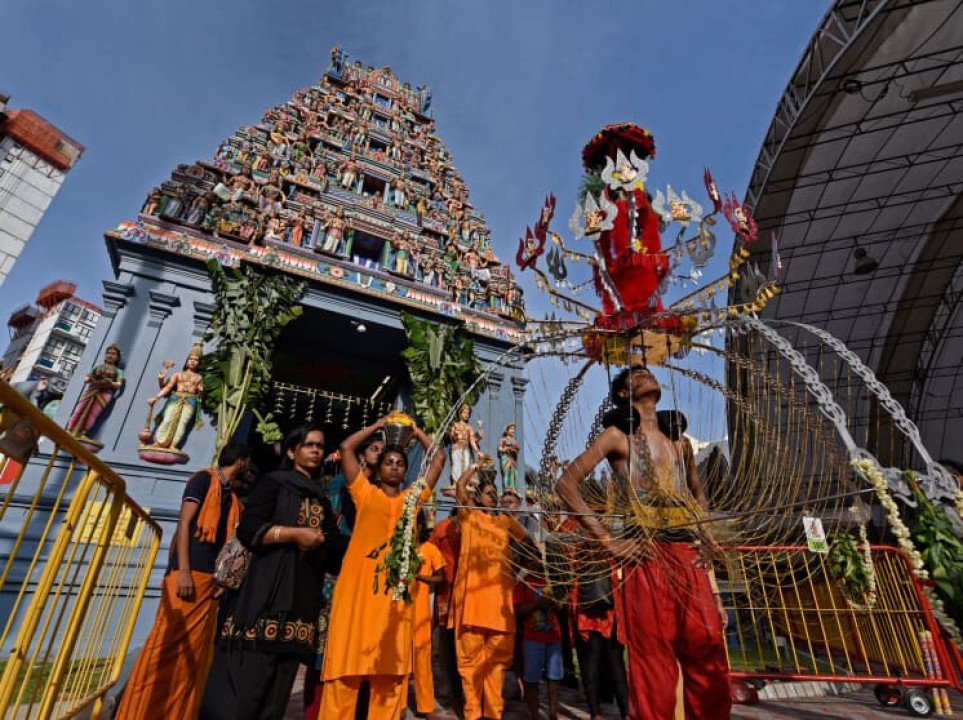
In Tamil Nadu, major Murugan temples like the Palani Murugan Temple and Thiruchendur Temple are central to the Thaipusam celebrations, hosting elaborate rituals and grand festivities. Devotees from all over gather to participate in special prayers, offerings, and processions, with each temple showcasing unique traditions. The Palani Temple, known for its hilltop location, involves a challenging climb, while Thiruchendur, located by the sea, offers a serene yet powerful atmosphere for worship. These temples become vibrant hubs of devotion, where the deep faith of the devotees is expressed through rituals, music, and the carrying of kavadi in honor of Lord Murugan.
Other Countries
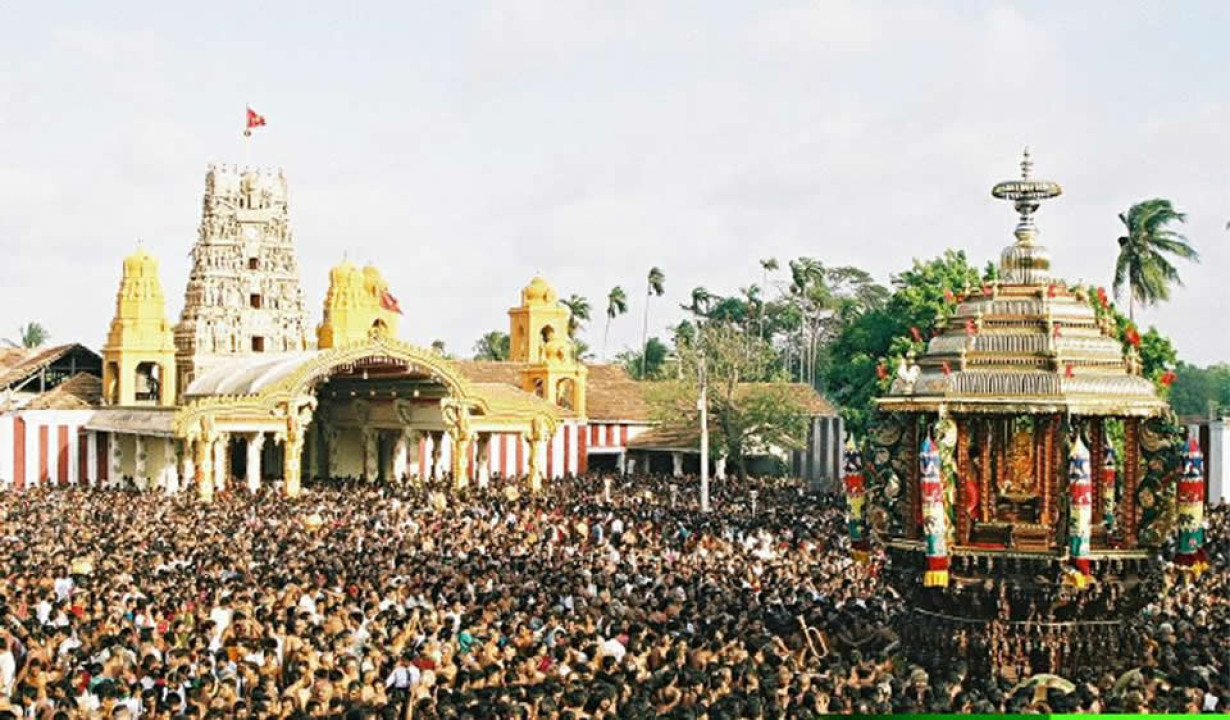
Thaipusam is celebrated by Tamil communities across the world, including in Sri Lanka, Mauritius, South Africa, and other countries, reflecting the global reach and resonance of Tamil culture and faith. In these regions, devotees gather at temples dedicated to Lord Murugan, participating in vibrant processions, rituals, and acts of devotion. The celebration transcends borders, bringing together people from diverse backgrounds to honor their shared heritage and express deep spiritual devotion. Whether in bustling city streets or tranquil temple grounds, Thaipusam serves as a powerful reminder of the unity and strength of the Tamil community worldwide.
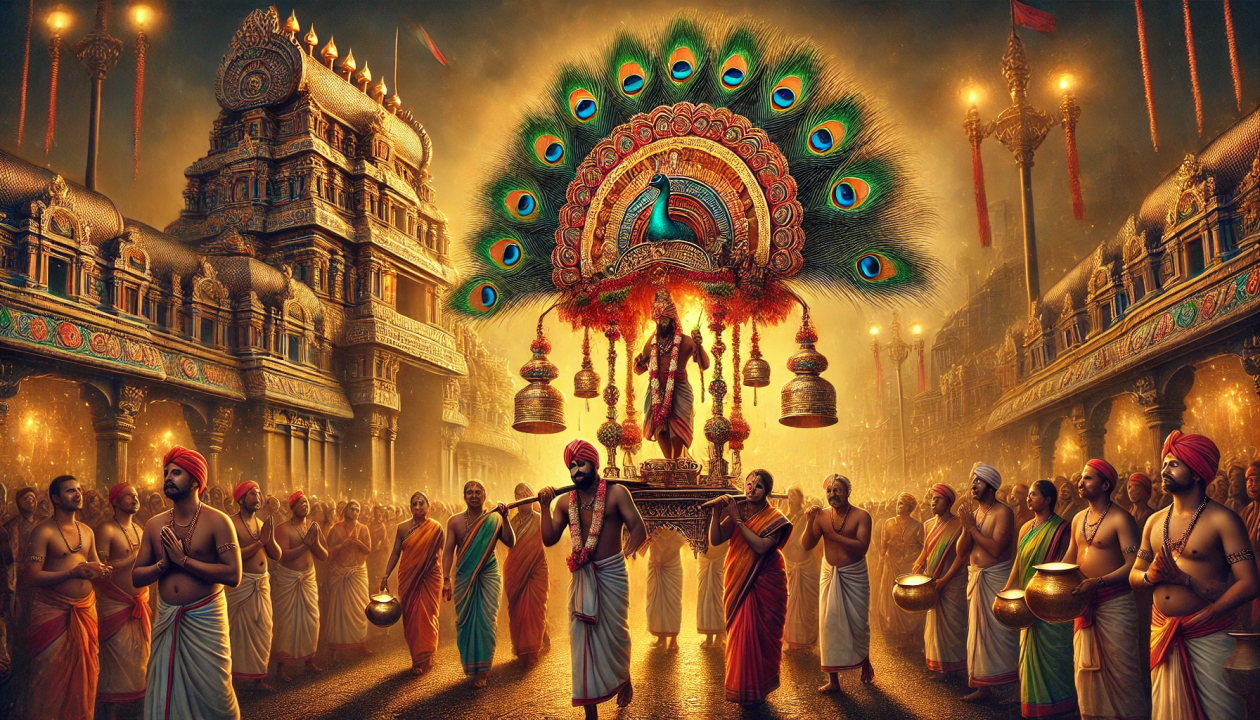
Thaipusam is more than just a festival; it is a profound spiritual journey. It reminds devotees of the values of self-discipline, humility, and unwavering faith. Whether through carrying the kavadi, offering prayers, or simply witnessing the vibrant processions, the festival inspires a deep sense of community and devotion.
As Thaipusam 2025 approaches, let us celebrate the triumph of good over evil and honor the enduring spirit of devotion that unites millions worldwide. Whether you are a participant or a spectator, Thaipusam offers a unique opportunity to connect with a rich cultural heritage and witness the incredible power of faith.
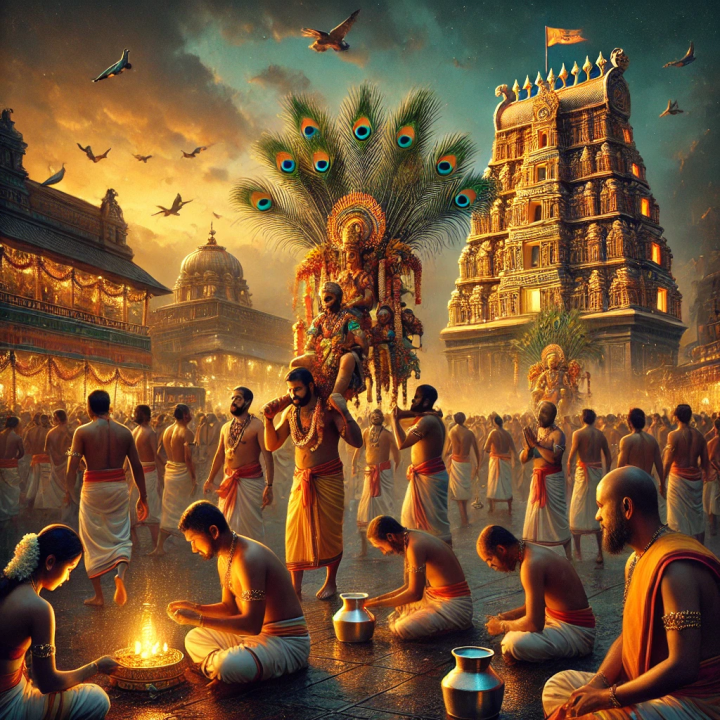
Thaipusam 2025 serves as a reminder of the strength found in faith and community. The festival’s rituals, processions, and celebrations highlight the enduring cultural and spiritual significance of this ancient tradition. It is a time for self-reflection, gratitude, and renewal, offering devotees a chance to deepen their connection with Lord Murugan and their spiritual journey. As the world comes together to observe this sacred day, Thaipusam continues to inspire awe and reverence, bridging the gap between the divine and the human spirit.